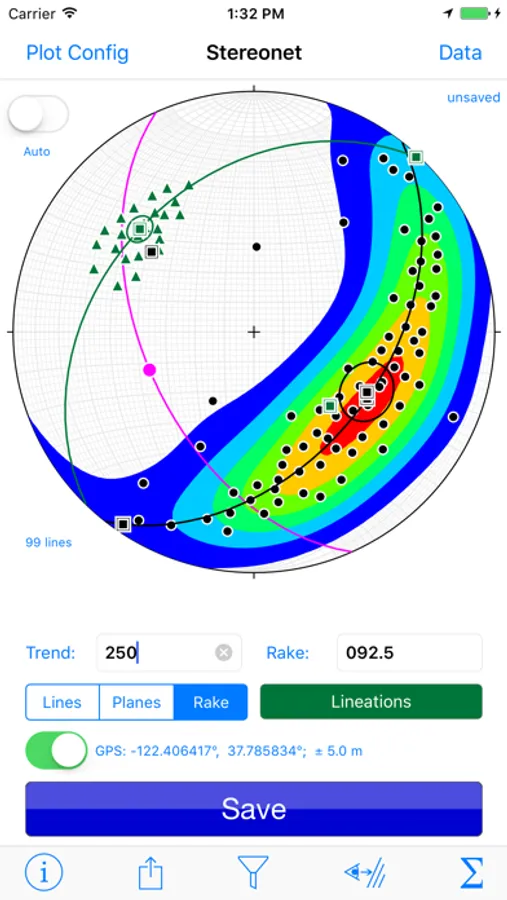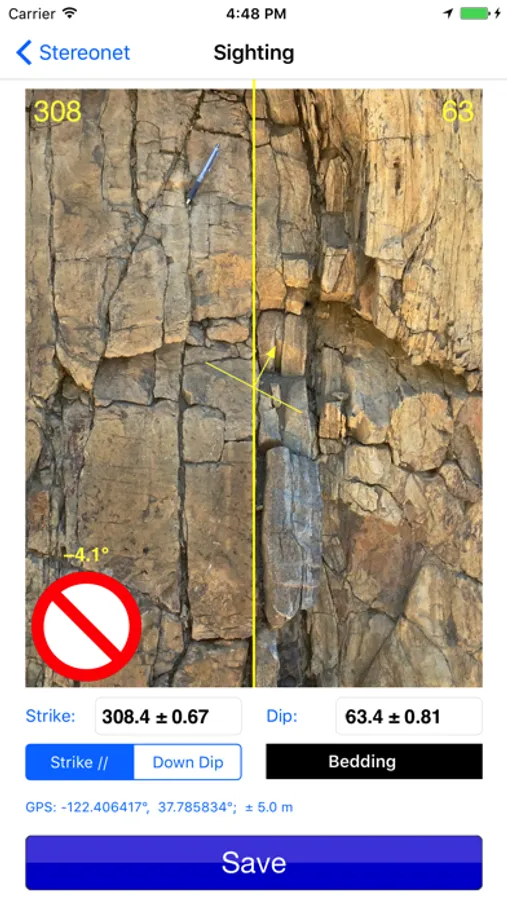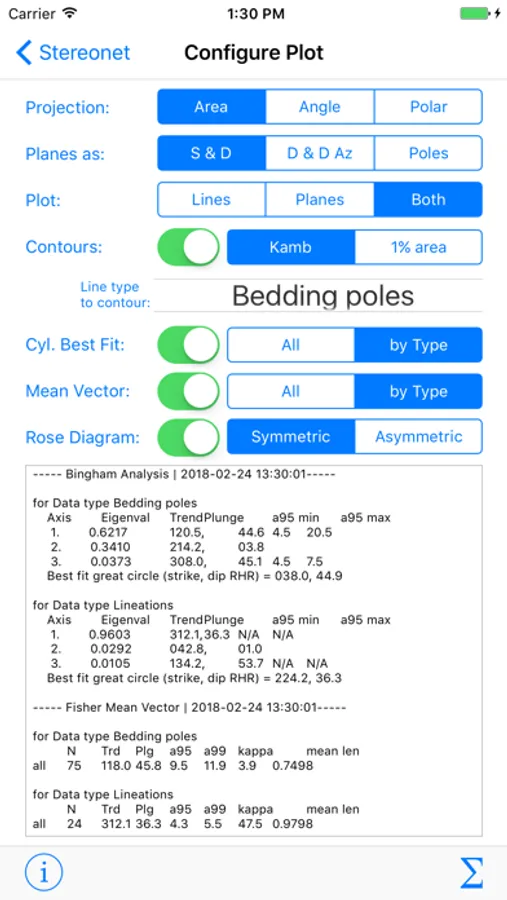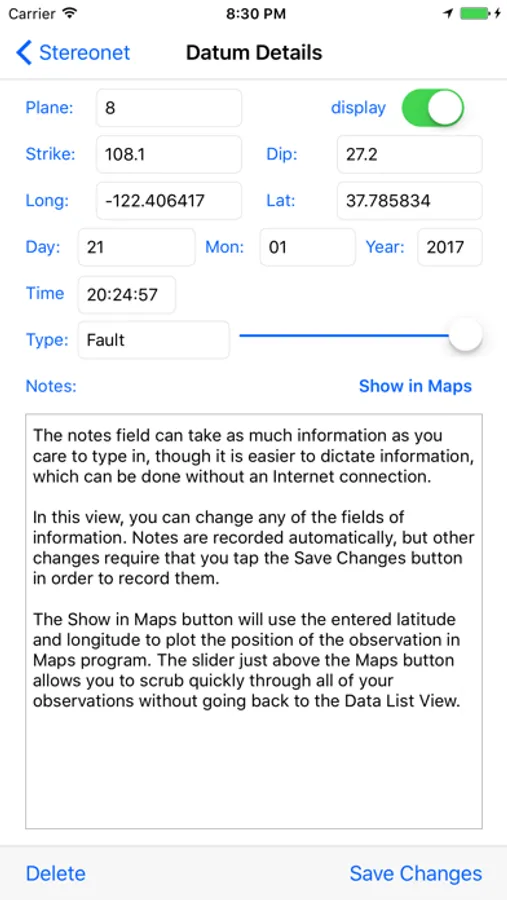AppRecs review analysis
AppRecs rating 4.1. Trustworthiness 60 out of 100. Review manipulation risk 28 out of 100. Based on a review sample analyzed.
★★★★☆
4.1
AppRecs Rating
Ratings breakdown
5 star
83%
4 star
8%
3 star
0%
2 star
0%
1 star
8%
What to know
✓
Low review manipulation risk
28% review manipulation risk
✓
High user satisfaction
83% of sampled ratings are 5 stars
About Stereonet Mobile
Stereonet Mobile is designed to help you collect, visualize, and analyze geological orientation data. It is a companion to my Stereonet program for desktop computers. As such I have tried to incorporate the basic functionality of that program, taking into account the inherent limitations of mobile devices. Some of the basic tasks that one can perform with Stereonet Mobile include:
• Provide automatic data entry as a geologist's compass by reading the iOS device orientation and converting it to strike and dip of planes and/or trend and plunge of lines. It is the only geology compass app that can use augmented reality to record the strike and dip of planes using the sighting method and the device camera.
• Provide manual data entry via either tapping and dragging on the stereonet or by typing values into text fields
• Plot lines and planes, which can be tagged using one of as many user defined data types (e.g., bedding, cleavage, slickensides, etc.) as you want
• Carry out basic calculations such as: rotations about any axis, planes from poles or poles from planes, measure angles between lines and between planes, and basic slope stability calculations
• Plot mean vectors, cylindrical best fits, rose diagrams, and contour lines.
• View the plots from any orientation, not just looking straight down into the lower hemisphere
• See the location of a datum on a map or satellite image (if you have an internet connection)
• Show realtime changes to the stereonet projection to help students understand the geometry of the device better
• Provide basic input and output of data using standard iOS conventions
• Works on iPhones or iPads. The program will work on iPods or iPads lacking a cellular data connection but those devices have fewer sensors and thus cannot be used in automatic data collection mode.
• Provide automatic data entry as a geologist's compass by reading the iOS device orientation and converting it to strike and dip of planes and/or trend and plunge of lines. It is the only geology compass app that can use augmented reality to record the strike and dip of planes using the sighting method and the device camera.
• Provide manual data entry via either tapping and dragging on the stereonet or by typing values into text fields
• Plot lines and planes, which can be tagged using one of as many user defined data types (e.g., bedding, cleavage, slickensides, etc.) as you want
• Carry out basic calculations such as: rotations about any axis, planes from poles or poles from planes, measure angles between lines and between planes, and basic slope stability calculations
• Plot mean vectors, cylindrical best fits, rose diagrams, and contour lines.
• View the plots from any orientation, not just looking straight down into the lower hemisphere
• See the location of a datum on a map or satellite image (if you have an internet connection)
• Show realtime changes to the stereonet projection to help students understand the geometry of the device better
• Provide basic input and output of data using standard iOS conventions
• Works on iPhones or iPads. The program will work on iPods or iPads lacking a cellular data connection but those devices have fewer sensors and thus cannot be used in automatic data collection mode.




